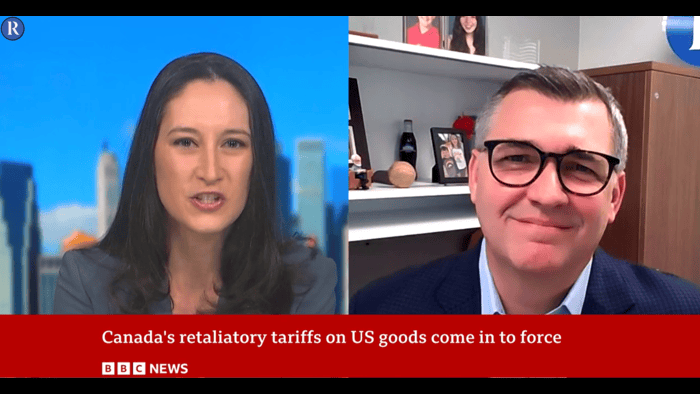Port Labor Showdown: T-Minus 20 Weeks and Counting
- By [ Jess Dankert ]
- 05/14/2024

All eyes in supply chain are on the U.S. East and Gulf Coasts this week, as the International Longshoreman’s Association (ILA) nears its self-imposed May 17 deadline for local union chapters to complete their port-specific local contracts, as part of the drawn-out process leading up to the September 30 expiration of the ILA’s master labor contract with the United States Maritime Alliance (USMX).
This is a critical inflection point for the negotiations, which must be resolved as soon as possible and well in advance of the master contract expiration, to ensure that U.S. and global supply chains can continue to function optimally.
Update 5/20: After making positive progress on the port-specific local contracts (though not fully meeting their May 17 goal for completion), the ILA is expected to turn its attention to the master contract this week.
Why it matters
The ILA-USMX contract is a top hot-button issue for supply chains this year. The negotiations cover 36 ports on the U.S. East and Gulf Coasts, and the ILA reportedly represents over 85,000 workers overall. Over 13 million containers of import cargo pass through East and Gulf Coast ports each year, plus export containers, automobiles, bulk cargo, and more. These numbers can represent as much as 56% of all U.S.-inbound containers in a given month. If negotiations break down and lead to a port labor strike, supply chain implications will be at least as significant as the seismic impacts of the ongoing Red Sea / Suez Canal disruption—possibly even more costly.
Large retailers are wary of possible port disruptions in the Fall—peak shipping season ahead of key U.S. holidays. It may seem early, but retailers are making decisions right now about how to mitigate or avoid the delays and costs of possible East and Gulf Coast port disruptions in the Fall. After all, no one needs a shipping container full of Halloween costumes in November.
Where things stand
Unlike the sudden onset of Houthi attacks in the Red Sea, the port labor contract expiration date has been on the books for years. Despite the advanced warning, here we are—just 20 weeks away from September 30 with significant ground still to cover.
- Talks first started in late 2022 / early 2023 but trailed off soon after, though the two sides continue to communicate informally.
- In March 2023, ILA President Harold Daggett asked the union's chapters to cease negotiations on their port-level local contracts. The local contracts are often described as 75% of the work of the negotiations, though usually relatively less contentious issues such as staffing, local welfare, work practices, and other topics.
- Almost a year later, in February 2024 Daggett directed the locals to restart local contract negotiations and gave them a "firm deadline" of this Friday, May 17 to complete these port-level negotiations.
- On May 13, the ILA and USMX issued a joint statement that master contract negotiations will resume next week, on the presumption that the locals will be completed by the deadline.
- Update 5/20: After making positive progress on the port-specific local contracts (though not fully meeting their May 17 goal for completion), the ILA is expected to turn its attention to the master contract this week.
While it’s positive to see negotiators head back to the table, the two sides reportedly remain far apart on key issues, particularly wages.
Outlook
The ILA has famously not had a strike since 1977, and contract negotiations have historically not been as tumultuous as those at West Coast ports. But following Daggett’s warnings to prepare for a strike in October, and a recent past full of labor disputes ending in breathless 11th hour agreements—including rail, UPS, West Coast ports, General Motors, and others—many retailer shippers may take the “hope for the best but plan for the worst” approach, and move timelines up or reroute to West Coast ports.
Meanwhile, the labor-friendly Biden Administration can ill afford a meltdown at the ports in October, mere weeks before the election. While the ILA has indicated that federal involvement is unwelcome, the administration will certainly be looking to ensure a smooth resolution to negotiations with a minimum of ruffled feathers or supply chain shocks.
Stay tuned—more to come on this subject!
Tags
-
Supply Chain
-
Transportation and Infrastructure
-
Workforce


